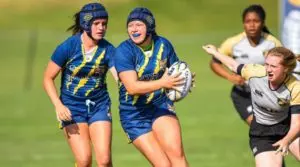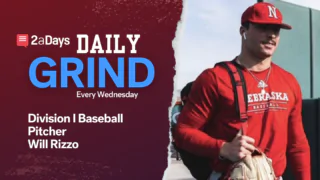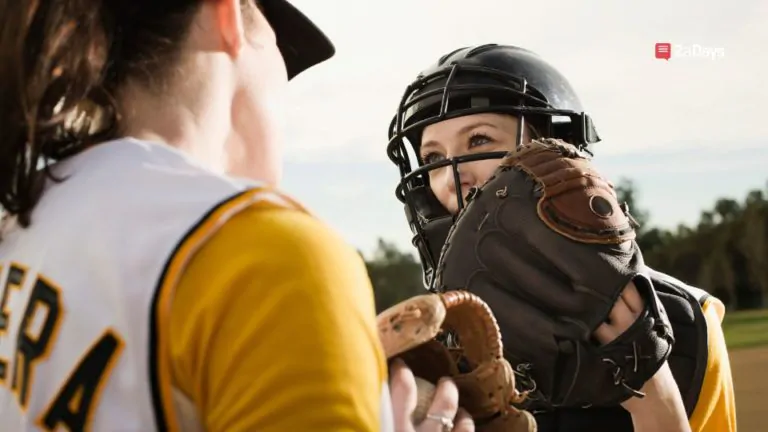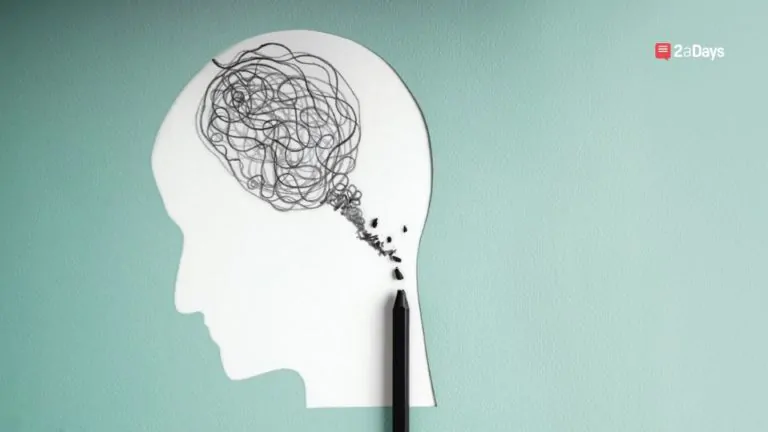Julia Ashley, an American professional women's soccer player is currently awaiting the start of the 2020 NWSL season. She graduated from the University of North Carolina as a four-year starter and was a first-round pick for Sky Blue FC in the 2019 National Women's Soccer League College Draft. Rather than signing with Sky Blue FC, Julia signed with Linkopings FC in Damallsvenskan, Sweden. She played three months in Sweden until returning to the U.S. due to a knee injury. Julia emerged from multiple knee surgeries by remaining positive, resilient and working hard.
2aDays: What is the best piece of advice you have ever received from a coach, and who was that coach?
Julia: I think the best piece of advice that I have ever received was from a mentor of mine, Yael Averbuch, a former Tar Heel and professional soccer player. She told me that I could never let a coach define me. Every coach has a favorite. It is crucial that even when your coach or anyone does not believe in you or your abilities that you continue to believe in yourself.
2aDays: What was the recruiting process like for you? How did you get recruited to play at the University of North Carolina?
Julia: I was very lucky to have a smooth and quick recruiting process. Starting in 8th grade/freshman year of high school, top schools recruited me heavily and I soon narrowed it down to Penn State, Duke, UVA, BC, and UNC. I went to identification camps at each of these schools to really get a better feel for the soccer and what the atmosphere would be like with the team. Along with the camps, I also took unofficial visits at each of these schools. The visits gave me a more in-depth understanding of the type of individual/soccer player that attends each of these universities, the importance of academics and what school would make me most happy if I no longer had soccer in my life.
2aDays: In your eyes, what is an essential piece of advice you could give to a high school soccer player looking to play in college?
Julia: Be fully dedicated and disciplined in every apparatus involving soccer. If you want to play in college, you must be all in and understand that this is going to be your job. To succeed in your job, you must be fully prepared. Develop your game in every area: technically, tactically, physically and psychologically, and never become complacent. The people who succeed the most at the college level are the ones that have a fire to win and impact.
2aDays: What is the first step that a high school athlete should take in the recruiting process? When would you recommend that a high school athlete reach out to a coach and how?
Julia: The first step that a high school athlete should take in the recruiting process is reaching out to college coaches in order to get on their radar. Make sure to attend camps and be on a team that will optimize your exposure to top schools as well as continue to help you develop as a soccer player.
2aDays: What is the best advice that you can give to a player dealing with an injury or other setbacks?
Julia: Keep the end goal in mind. Each day, wake up and attack the day with purpose. Even if you are struggling with an injury or dealing with another setback, these things are temporary, so stay on track, do all of the little things to get back to where you need to be, whether it is strengthening your physical, psychological, or emotional side of the game. One of the hardest parts about dealing with an injury or another setback is feeling like you are alone or on an island since you may not be involved with the team as much because of your injury/setback. Remember that you are not alone, you are not on an island, and that you should surround yourself with people who can help you and/or are in a similar situation to you
2aDays: What type of adversity have you faced throughout your soccer career, and how did you overcome it?
Julia: One of the biggest struggles that I have faced throughout my career is overworking myself/burnout. I am a very extreme person, and whatever I do, I engage full-heartedly because I have high expectations of myself. I love this game and I want to achieve so much on the field, so I am willing to do whatever it takes to be the best I can be. This is definitely a strength and a weakness of mine. Going into my sophomore year at UNC, I overworked myself every day during the summer. I was doing a ton of shooting, ball work, and fitness, following the UNC Summer packet to a T, and then doing extra on top of that. I didn't even know it for about a month, but I was playing on a torn hip flexor, which I then needed an injection for as well as a lot of rest time (which I hate). This experience taught me how important rest is and how an athletic must listen to his/her own body. It is very tough when you have coaches and other external factors pressuring you to do more, but only you know your body.
2aDays: What is the best piece of advice that you can give to athletes who are looking to get off the bench?
Julia: The best advice I can give to athletes who are looking to get off the bench is first to figure out why you are on the bench and work on all of your weaknesses and in order to make them your strengths. Continue to go to your coach and ask what you can do to get an opportunity or a shot. If you are persistent with your actions on the field as well as demonstrating to your coach that you really care, then something positive should come out of this adverse situation. The hope is that your coach is honest with you about where you stand and what your chances are.
2aDays: Of course, physical fitness and physical strength are crucial in the game of soccer, but how does one stay mentally fit?
Julia: One of the best ways to stay mentally fit is starting your day, starting your practice/game and ending your day with a mantra about who you are and who you want to be on the field. It can be an exaggeration, but have it be something positive and empowering. If you continuously state this mantra, your mind will be locked in each day, even when you're not feeling 100% physically. The mind is extremely powerful, and it can surpass physical fatigue if you tell yourself that you are an absolute badass on the field, and if you truly believe it, then your chances of playing with confidence are much greater.
2aDays: Do you feel that meeting with a Sports Psychologist has helped you reach your soccer potential? If so, how and why?
Julia: I do not think I have reached my soccer potential yet, but I do believe that sports psychologists have good methods that can help athletes cope and deal with their issues on and off the field. I do believe that you need to find the right fit when you're seeing a sports psychologist. Each psychologist's approach is different, and you want to see someone you work well with and who will address your needs.
2aDays: Were you afraid to meet with a Sports Psychologist for the first time? If young athletes are having difficulty with mental stress or parents putting pressure on them, what would you advise them to do?
Julia: I was not afraid to meet with a sports psychologist for the first time because I grew up in therapy. If young athletes are dealing with mental stress or parents putting pressure on them, then I would advise them to tell their parents exactly how they feel and then taking progressive steps from there. I believe that any pressure that an athlete is feeling should come from internal expectations as opposed to any external factors. And if the internal mental stress is becoming overwhelming, seeing a sports psychologist is a great route to take, and it is nothing to be ashamed of.
2aDays: What was the most challenging thing about playing overseas in Sweden? What advice can you give to college soccer players who are looking to go pro? What would be the first step to this process?
Julia: The most challenging thing about playing overseas in Sweden was being so far out of my comfort zone in a new country with a new language, and adapting to the entire lifestyle/way things worked. As a professional as opposed to being a collegiate athlete, people are no longer as concerned with making you feel acclimated or welcome. I truly felt very lonely being abroad and had a lot to figure out on my own. It was a great experience, though, and made me realize how lucky I am to have grown up in America with incredible coaches and great resources in terms of physical therapy, strength conditioning, and nutrition, etc. If you are looking to go pro, really focus on having an excellent senior year. The better you and your team do, the more likely you will get drafted. If you do not get drafted and or want to go overseas, I do recommend getting an agent to help with that process.
2aDays: What do you think is an essential attribute of being a good leader on and off the field?
Julia: I think an essential attribute of being a good leader on and off the field is caring. The best leaders are the ones that truly demonstrate genuine care for their teammate's development/ contribution on the field as well as their character development/general life off of the field.
2aDays: Would you have used 2aDays as a resource during the recruiting process?
Julia: LRT would have been a great resource to have during the recruiting process since it comes from the players that have been through the collegiate athletic world.
Fun Questions:
2aDays: What is the funniest thing that happened to you or a teammate while on the field?
Julia: In my junior year at UNC, I got donkey kicked in the groin area. It was extremely painful but very funny for everyone else!
2aDays: What is your go-to meal before a big game?
Julia:
Toast, bananas, and peanut butter
Edited by Caroline Kurdej
* Originally published on January 16, 2020, by Kate Morris







